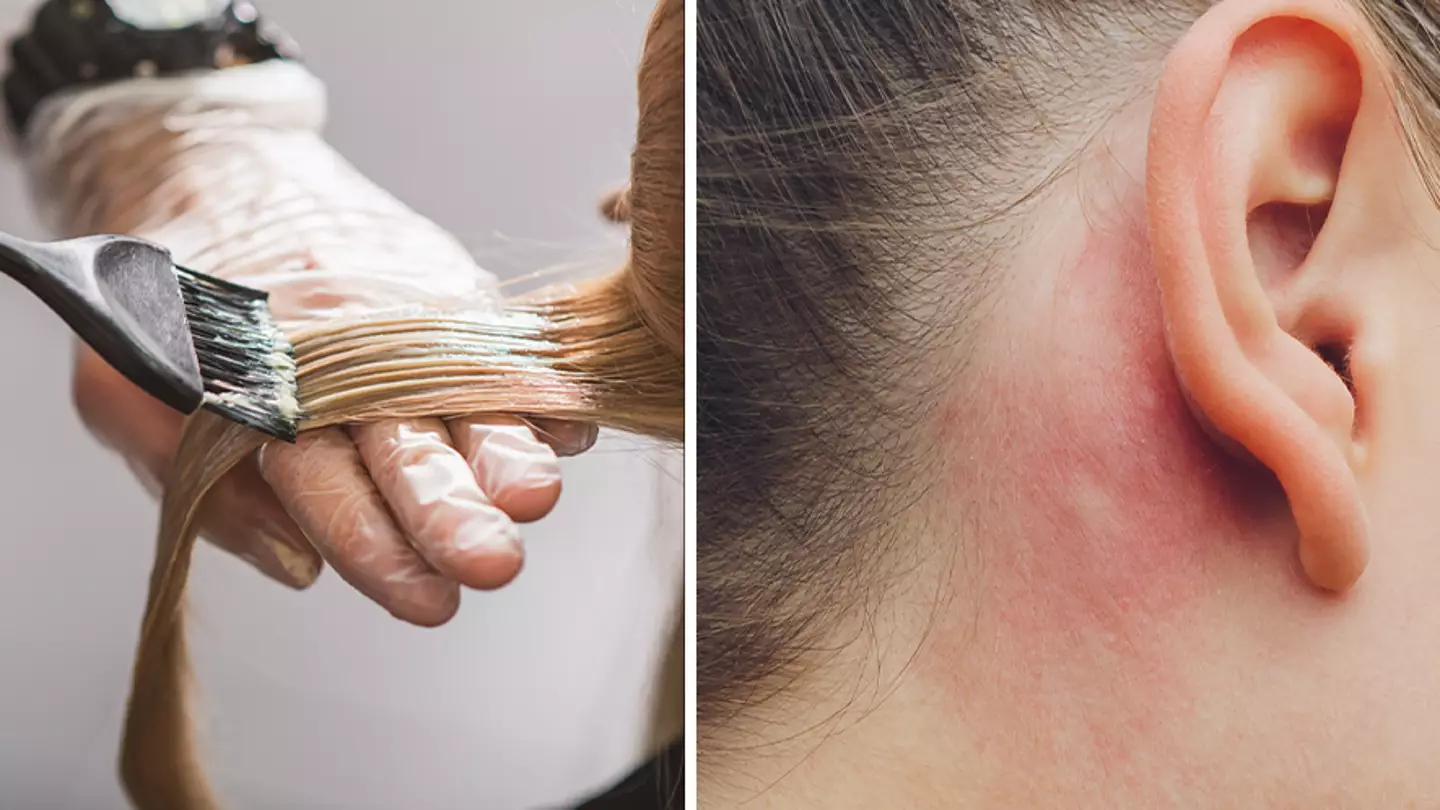
Hairdressers are urging clients to take an extra patch test if they've had Covid since their last appointment.
Since the pandemic began, an increasing number of people have been reporting having adverse reactions to hair dye - even from products they'd previously been able to tolerate for years.
Others had noticed the reaction after a patch test, with some have reporting mild irritation and redness, while others have been left with painful, itchy rashes and burns.
It's led to many hairdressers urging clients to repeat a patch test if they've recently contracted the virus.
Advert
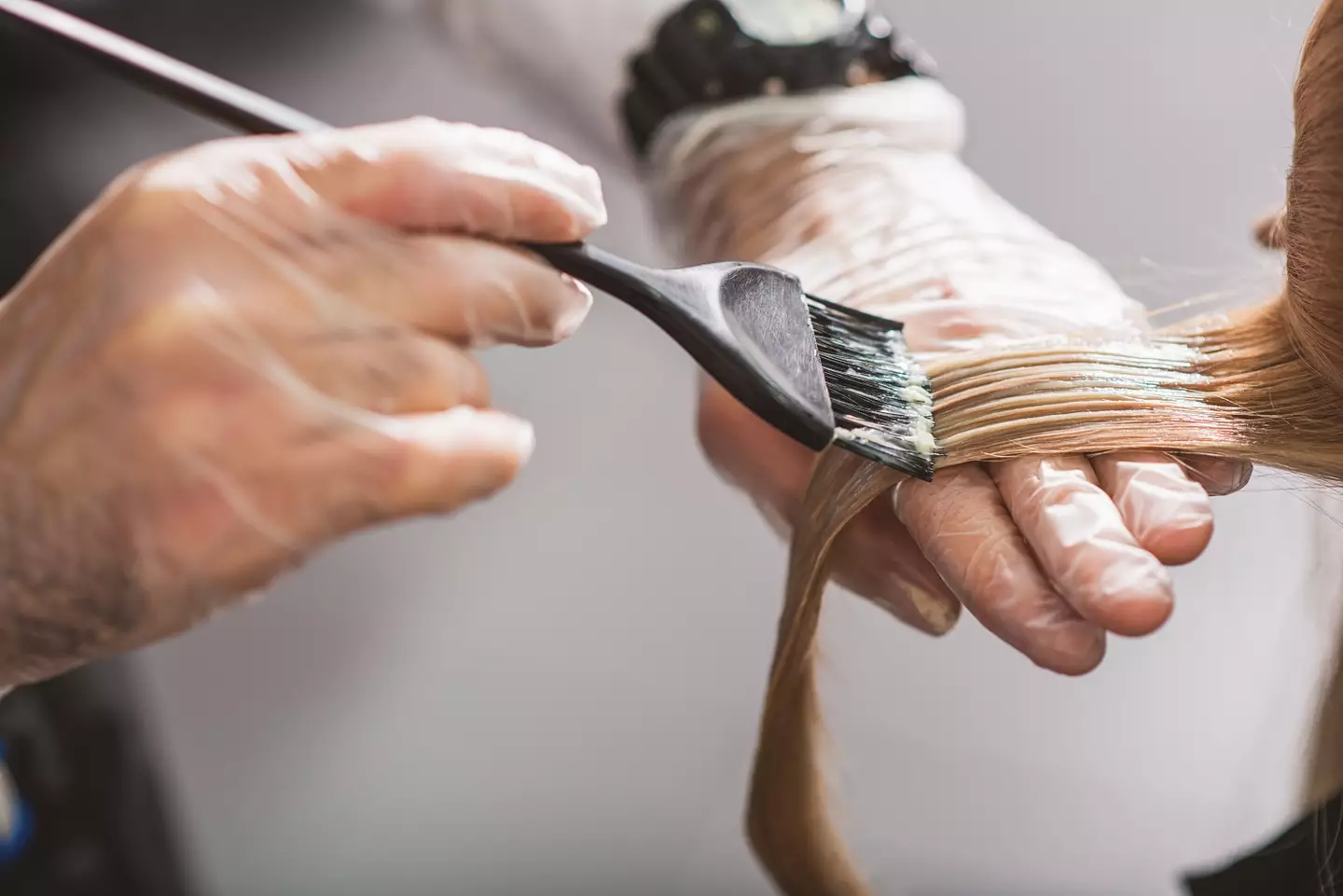
Gavin McIntyre, director at G&E McIntyres salon in Northampton, says staff are actively asking clients to take an extra test.
“We’re asking all clients who have tested positive for covid-19 to have a patch test done before their next colour appointment," Gavin tells Tyla.
"Whilst it’s difficult for us to know if any new reactions or allergies are due to a change in the body’s immune response once a client has had covid, client safety is paramount for us so it’s something that we’re trying hard to enforce.
"It’s also tricky as due to a change in testing protocol not all clients will be aware that they’ve had covid. But we’d definitely advise that if you know you’ve tested positive for covid since your last hair appointment, or even suspect that you might have had it, to ask your stylist for a patch test - it’s better to be safe than sorry.”
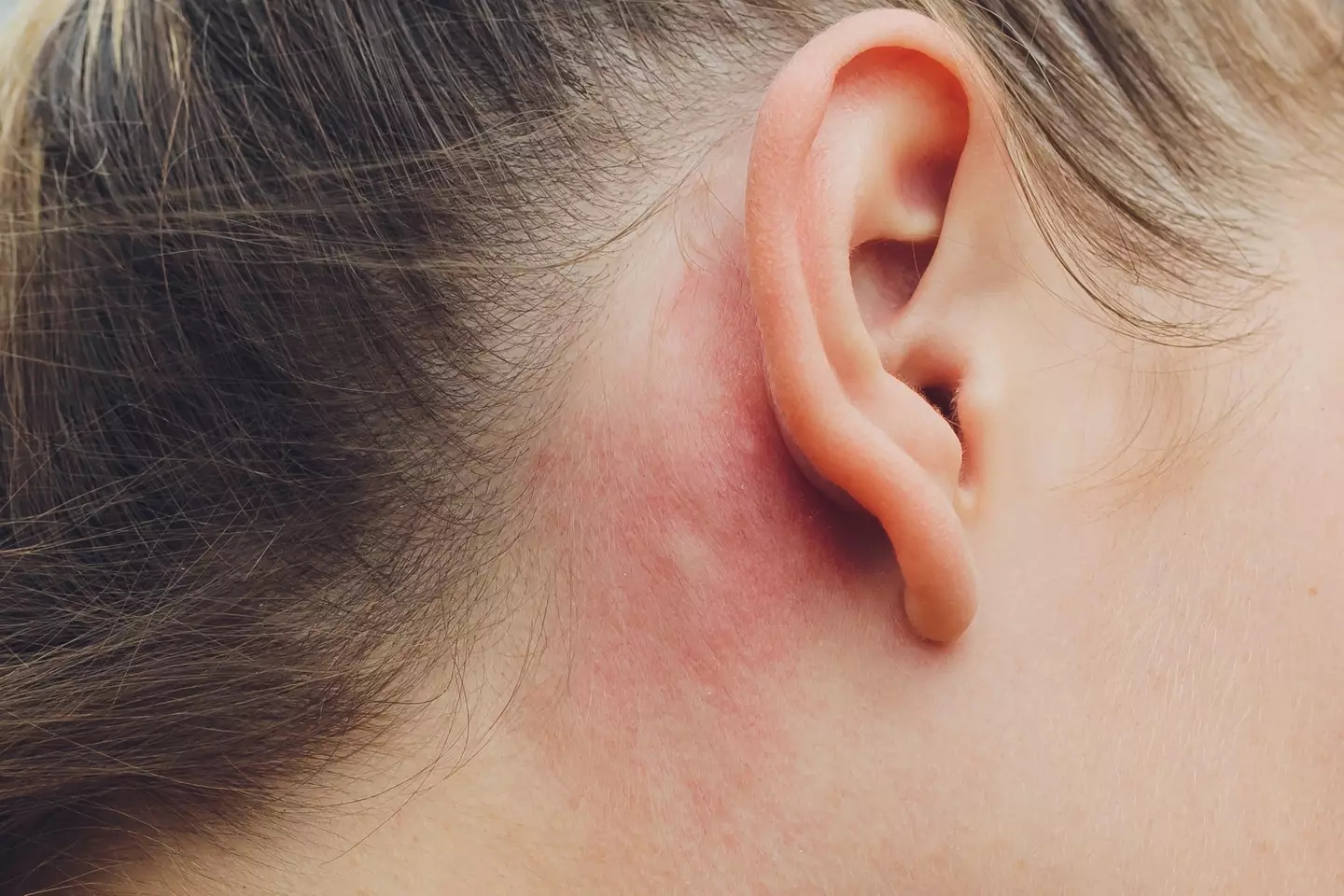
So what is actually happening? How can covid cause this?
Tyla spoke to Dr. Amit, of Harley Street's Cosmebeauté, who helped us understand how a reaction like this can occur. While plenty more research needs to be done on the subject, many in the medical field have theories on what could be causing the reactions.
"Many permanent and semi-permanent hair dyes contain a chemical called paraphenylenediamine (PPD) which is a known irritant and allergen and found in a higher amount the darker the colour of the dye," Dr. Amit tells us.
"Whilst no clear evidence has yet been found to link the effects of covid and hair dye, more of my patients have noticed a greater incidence of reaction post-Covid.
"The school of thought amongst the medical fraternity is could some immune effect or reprogramming from coronavirus have caused a heightened sensitivity to PPD? Or, has the largest organ we have - the skin - been suppressed in its defence and consequently reacted to hair dye?
"The long-term effects of Covid are still being investigated and only long-term studies will help us to determine if hair dyes are likely to cause more allergic symptoms to patients. Always perform a small patch test prior to use of any hair dye," he suggested.
Meanwhile, Dr. Gareth Nye added: "Allergies come about when our immune system attacks something that should be OK - so hay fever is our immune system attacking pollen for example. It appears that following covid, our immune system is more sensitive to products, one of which is hair dye which we normally wouldn't be bothered by. Even if it's a product used before.
"The advice should be to patch test any product before full use even if you've used it before."
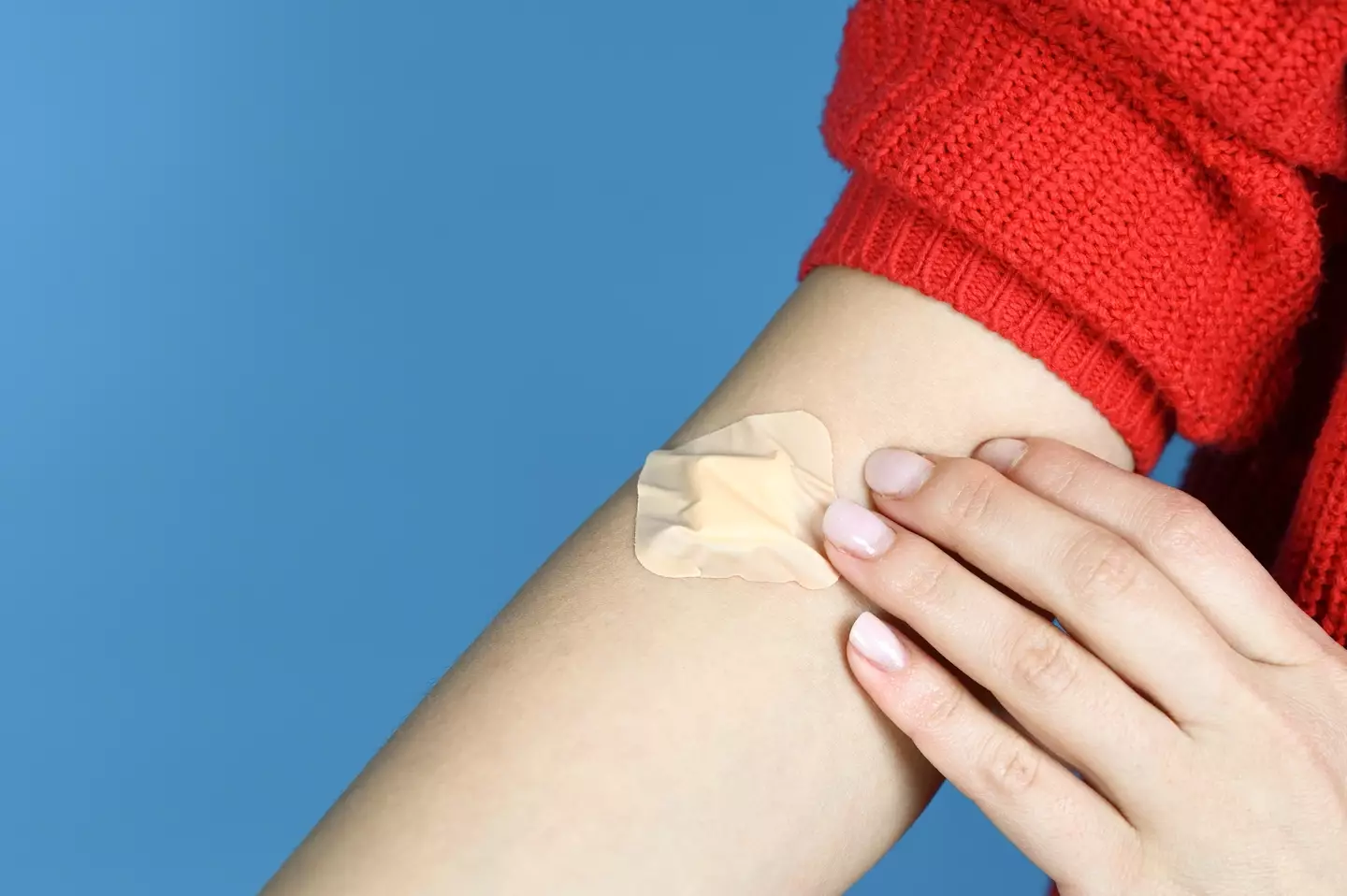
Essentially, if you've had covid since your last appointment, it's best to get another patch test, even if you've had a patch test before.
The rise in reactions is something Milk + Blush hair expert Nicole Petty has also noticed. She tells us how The National Health and Beauty Federation is now advising all salons and hair professionals to carry out compulsory patch tests at least 48 before an appointment.
“There have been recent reports of customers suffering severe allergic reactions, such as rashes and burns, after hair dye application following a positive case," says Nicole.
"Reactions to hair dye can span from mild irritation to severe allergic reactions or even anaphylaxis, which can result in swollen features, breathing difficulties or death in the worst case."
Nicole also advised what we can do if we find ourselves with a reaction to hair dye.
"While those who find themselves with severe reactions need to contact 999 immediately, mild symptoms can be treated by washing the hair and scalp thoroughly to remove excess dye, applying a moisturising product to the affected area or steroid cream (can be purchased over the counter)," she says.
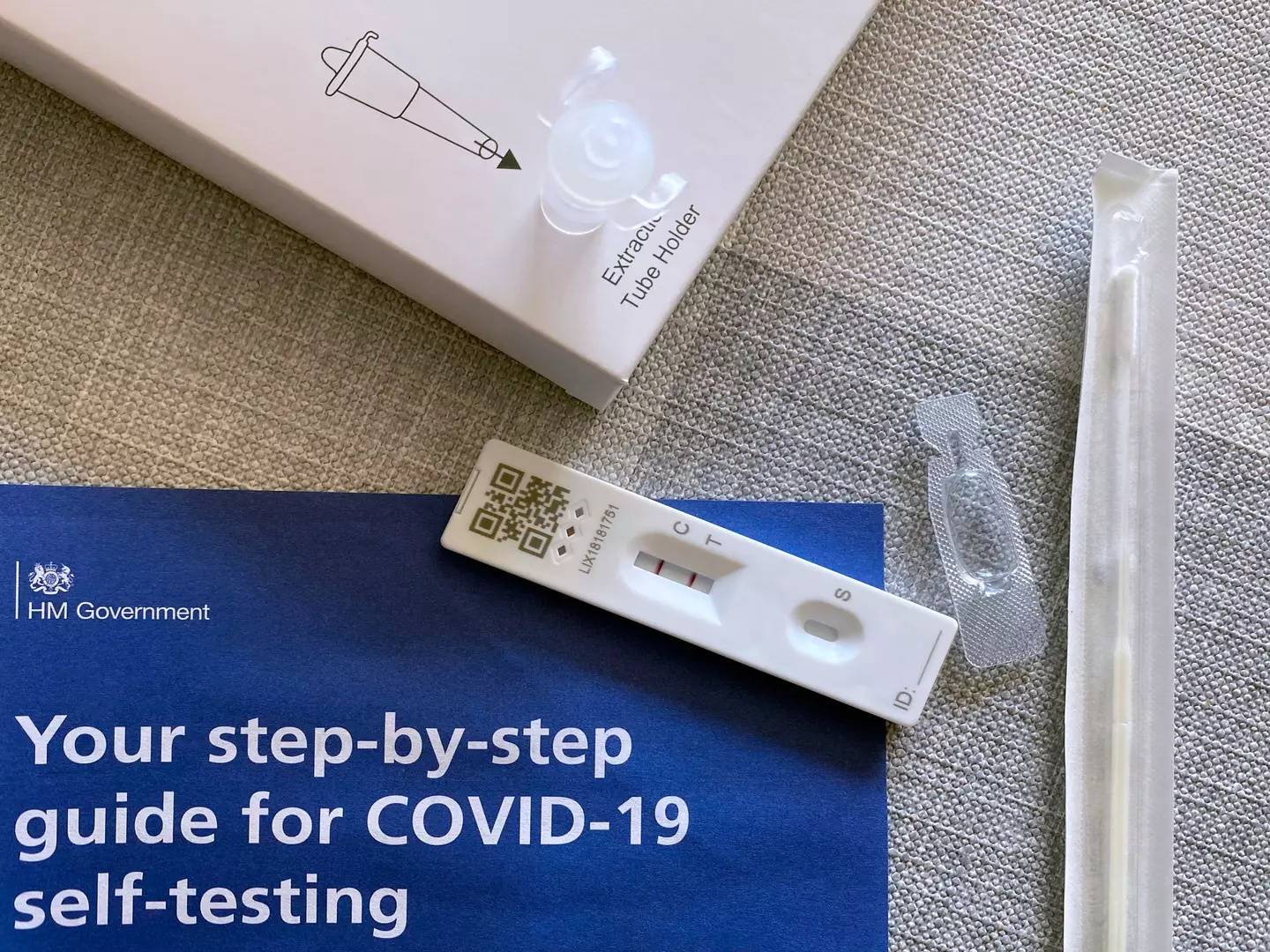
"But to avoid the issue happening altogether, hairdressers and their customers need to ensure they are working together by planning a consultation and patch test before the hair dye appointment.
"While we would always recommend visiting a professional, if you prefer using box dyes, it’s vital you always carry out a patch test beforehand. Regardless of whether you have been using the same box dye for a long time, your skin's tolerance to the chemicals may have changed."
The NHS explain that hair dye reactions can range from mild irritations - with skin that may become red, swollen, blistered, dry, thickened and cracked. You may also feel a burning or stinging sensation - to severe allergic reactions.
They advise: "Dial 999 for an ambulance if you think you or someone you’re with is having a severe allergic reaction. Give an adrenaline injection if you have one."
You can read more on hair dye reactions, and how to spot them, here.
Noted!